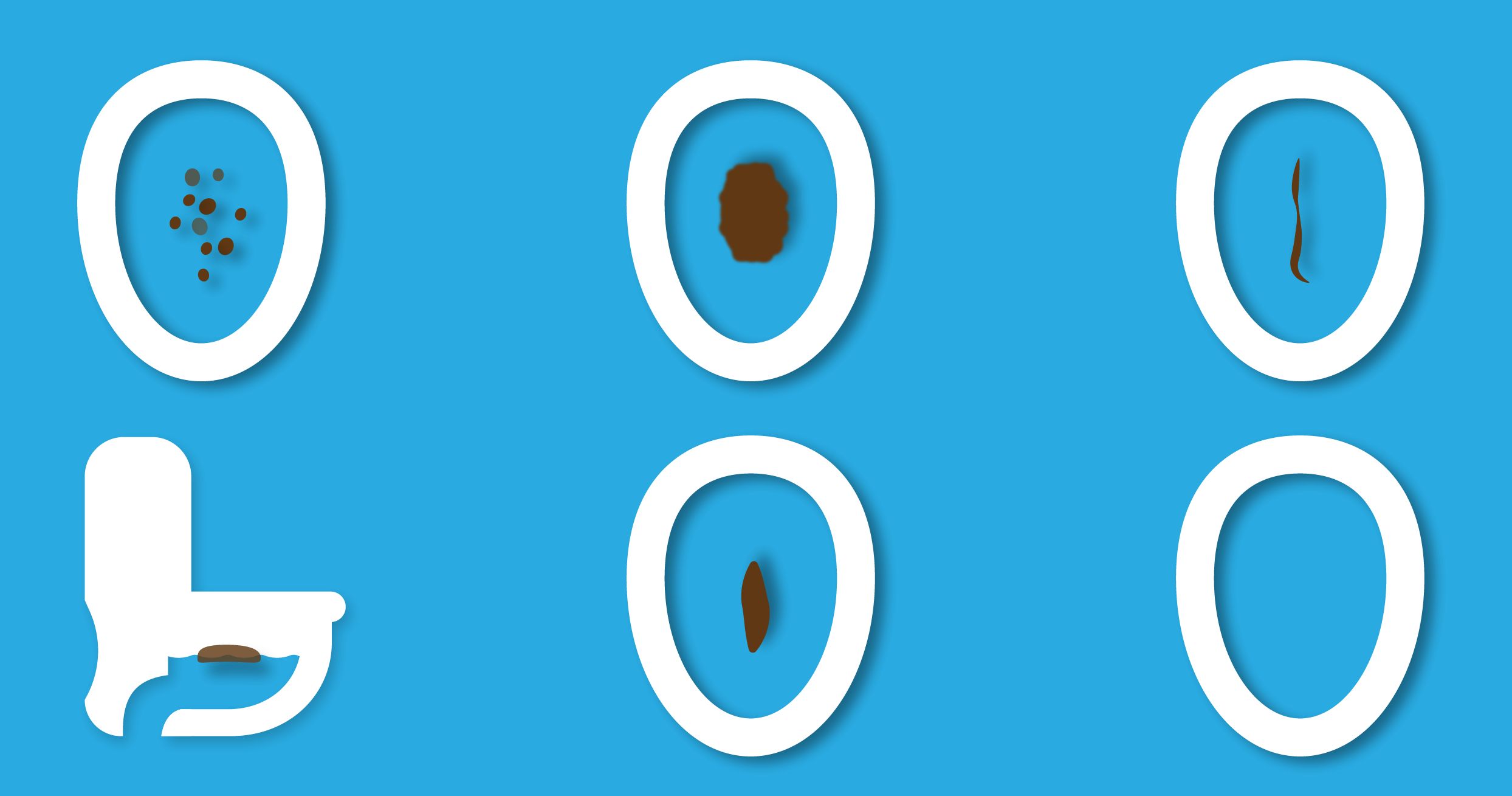After sitting on the toilet, the last thing you want to do is take a look at your handiwork before you flush.
But this gross habit is worth the discomfort, because it can help you identify some very serious health problems, or at least tell you when you should visit your doctor.
While we think of all poop as "number two," there are actually seven different kinds of bowel movements, as described by the "Bristol Stool Scale."
Doctors use this medical chart to identify a variety of medical conditions. The time your stool spends inside your colon and what happens while it's there influence that shape of your bowel movements in very specific ways. Here's what to look out for the next time you go to the washroom:
Type 1: Rabbit Poop
These are lumpy and tough, like nuts. Passing them involves lots of straining, and you'll often feel like you haven't "gotten everything out." Allergy medications like Benadryl are also known to cause type one poop. They're also common with women just after they give birth.
If you experience this very often it could be a sign of a scar or growth on our colon.

Type 2: Sausage Poop
This type is still hard and lumpy, and it can cause abdominal pain and be hard to pass. If you notice type two frequently you might just have a "slow bowel," which is nothing to worry about.
Type one and two are both signs that you are constipated. Drinking more water and eating fibrous foods like fruit and veggies will help relieve constipation. So will cutting down on meat, potatoes and cheese.

Type 3: Healthy Poop
Described as looking like "a sausage with cracks on the surface," you shouldn't feel much discomfort while passing these.

Type 4: Snake Poop
Soft and smooth on the outside, but not broken apart, these are very similar to type three but mean you're getting lots of fiber in your diet.
You should aim for a type three or four, because it shows that your diet is healthy and you have no major abdominal conditions to worry about.

Meanwhile, beware of the next three categories...

Type 5: Clumpy Poop
This type is like soft blobs, and while they're very easy to pass they can be a sign of stress, or a bad reaction to a recent meal. IBS patients also describe type fives very often, as well as people with lactose intolerance. Diets rich in artificial sugar will also cause type fives.
Type 6: Pudding Poop
These are normally compared to mud. They're a form of diarrhea but not completely watery. The pieces look "fluffy" with "ragged edges." If you regularly see type six, it could mean your body isn't absorbing enough vitamins and minerals.
Diabetes medicines and some antibiotics will also cause type six, because of changes to your gut bacteria. More seriously, it can be a sign of stomach conditions like Crohn's or Colitis.

Type 7: All Water
This is what's normally described as diarrhea, almost completely watery. If you're seeing number seven you'll probably go to the bathroom more often, as in once every few hours, so be sure to stay hydrated.
If type five, six or seven continues for too long, it could be a sign of an infection or a serious bowel condition.

In general, here's what you should be on the lookout for:
- Any type other than three or four is cause for concern if it lasts for more than a week.
- The average, healthy person has a bowel movement daily, or around three times per week on the low side.
- Your bowels are very sensitive to stress, because they're full of serotonin and epinephrine receptors, so your poop can change if you're under a lot of pressure.
- Rapid weight loss or blood in your stool means you should visit your doctor ASAP.
Share this guide with someone you know!



